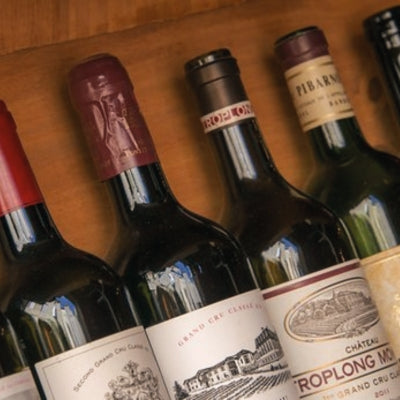
The return of tariffs: what it means for fine wine
Tariffs are back – and with them, a familiar sense of uncertainty.
Anyone who has followed the fine wine market over the past few years knows that trade tariffs – like those applied to European wine imports into the states – have a tendency to rise and fall with the political tide. The most recent shift, following President Donald Trump’s return to office in 2025, has already brought a fresh wave of volatility. Within just one week, tariff levels changed from 20% with immediate effect to 10% after a 90-day pause.
This constant flux makes it difficult for wine buyers to know exactly where they stand. Will tariffs apply? If so, at what rate? And when?
These aren’t easy questions to answer – even for those of us within the industry.
Why tariff confusion is so common
Import tariffs are inherently unpredictable. Government policy on tariffs can change quickly – and often with little notice. Overnight decisions, politically driven trade negotiations, and retaliatory measures between governments all influence what applies and when.
This murkiness makes it difficult for buyers to make informed choices. But it’s also why precision, communication, and process control are more important than ever.
What we’re doing to protect clients from tariff surprises
At Westgarth Wines, we’ve built a system to bring clarity to this uncertainty.
Unlike most US wine retailers, we are a federally licensed importer – which means we manage the entire importation process from sourcing and shipping to customs clearance and delivery. This end-to-end oversight of how and when wines enter the US helps us ensure that our customers only pay tariffs if and when they intend to.
Clients will be notified as soon as their purchased wines are ready to airship – at that point, they decide whether they pay the tariff and import, or store in Europe for free shall they choose to delay delivery until tensions ease.
This flexibility helps avoid unwanted costs and removes the pressure of reacting to policy changes in real time.
In summary
Tariffs can be confusing. They shift with politics, they don’t apply uniformly, and they rarely come with a roadmap.
But that doesn’t mean wine purchases need to suffer from that uncertainty. At Westgarth Wines, our process is designed to protect clients from tariff surprises – ensuring that no unnecessary costs are passed on, and that they remain firmly in control of when their wine enters the country.
If you have questions about how tariffs may affect a current or future order, we’re always here to help.
Want to read more? Take a look at some of our other blogs:
Also in News

Château Smith Haut Lafitte: Masters of Graves elegance
Blending elegance, terroir, and family-led precision winemaking.

An introduction to wine yeasts: Part 2
Cultured yeasts, fermentation styles & the role of the winemaker

